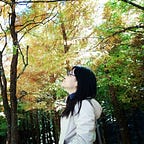Psalm 137:1–4
By the rivers of Babylon we sat and wept
when we remembered Zion.
There on the poplars
we hung our harps,
for there our captors asked us for songs,
our tormentors demanded songs of joy;
they said, “Sing us one of the songs of Zion!”
How can we sing the songs of the Lord
while in a foreign land?
Ying Fuk Tsang’s prayer (2016)
By the harbor of Victoria we sat and wept
when we remembered Hong Kong.
There on the Hong Kong orchid trees
we hung our guitars,
for there our captors asked us for songs,
our tormentors demanded songs of joy;
they said, “Sing us one of the songs of People of Republic of China!”
How can we sing the songs of the Red Party
while in our own land?
This is a book written for Hong Kong Christians, who lived in 20 years after 1997 handover to China. Ying uses the exile in the Israelites’ old days as a metaphor to portray the current Hong Kong. When the promise of return back to the motherland is not the promise anymore, how can Christians identify themselves? Israelites confronted the captivity through history and memory. What is Hong Kong’s history and Christians’ memory? What kind of subjectivity can be shaped when Chinese hegemonic power embedded in Sinocentrism is so dominant? Can Hong Kong can be a real other and got liberated in such tension?
Under the pressure of the captivity, what identity does Hong Kong Christians need and make them to find a way? Foolish people, obedient citizens, riots, or immigrants? Ying goes back to the Old Testament and finds the tradition of being the elected and the remnant. Such identity, which shaped Israelites’ exiled memories, could also shape Hong Kong Christians’ memories.
One passage about memory is particularly intriguing. Ying quoted from one of the Rabbi Besht’s stories from Elie Wiesel’s Nobel lecture in 1986. https://www.nobelprize.org/prizes/peace/1986/wiesel/lecture/
“I love it most of all because it emphasizes the mystical power of memory. Without memory, our existence would be barren and opaque, like a prison cell into which no light penetrates; like a tomb which rejects the living. Memory saved the Besht, and if anything can, it is memory that will save humanity. For me, hope without memory is like memory without hope.”
Memory saves. And when facing history, we all need memory. Memory can never be neutral. It even is risky because it will release those had gone to alive again. This means that the past would intrude into our current living once more. But if we let the past restored in resurrection and make it alive as it should be, it might provide hope and redemption.
